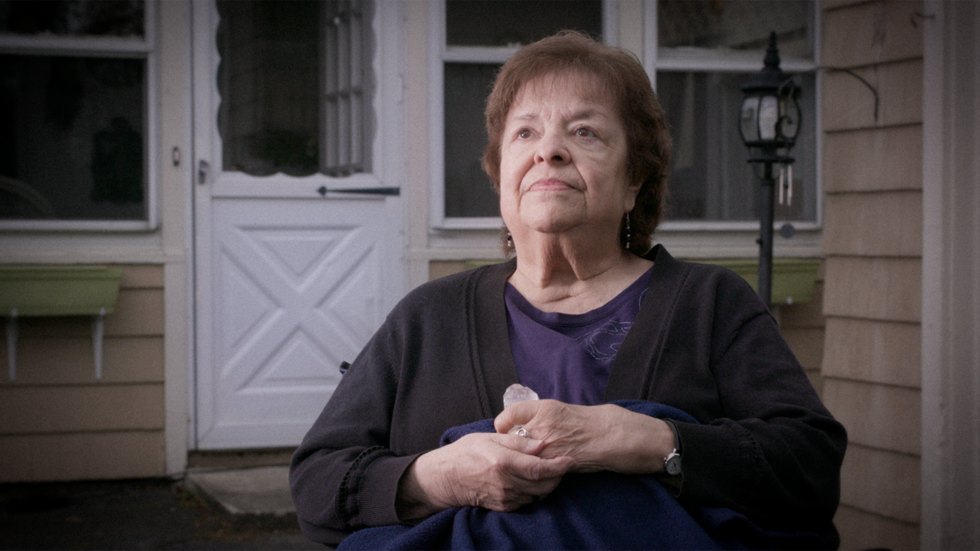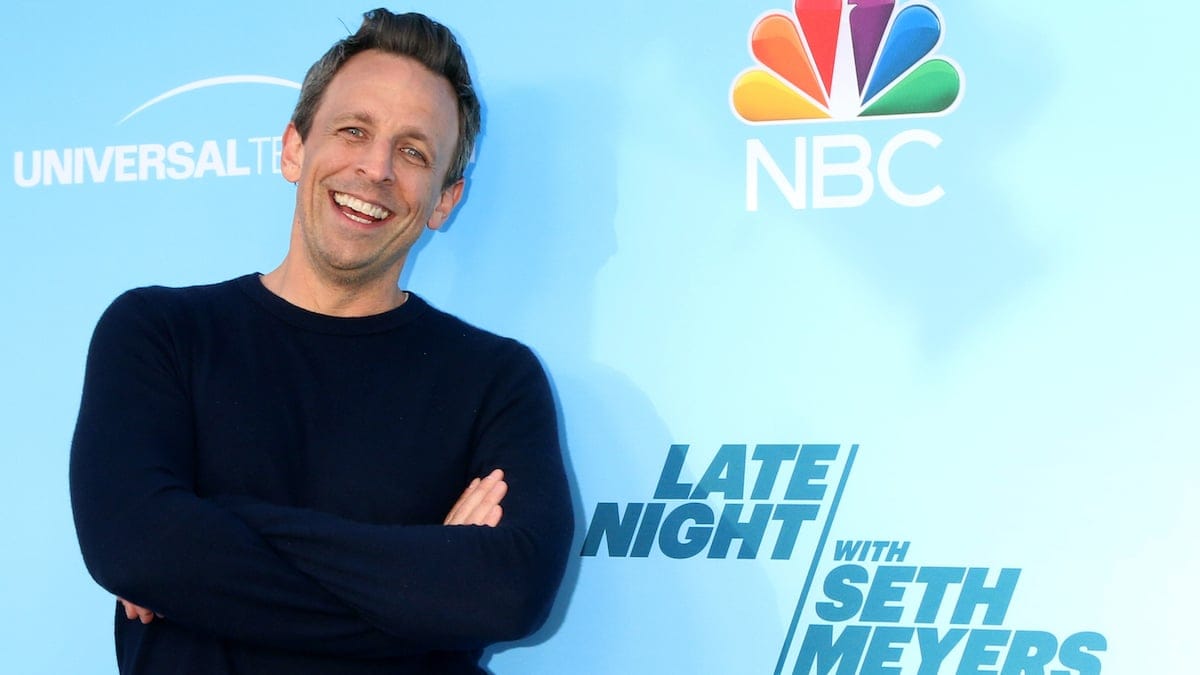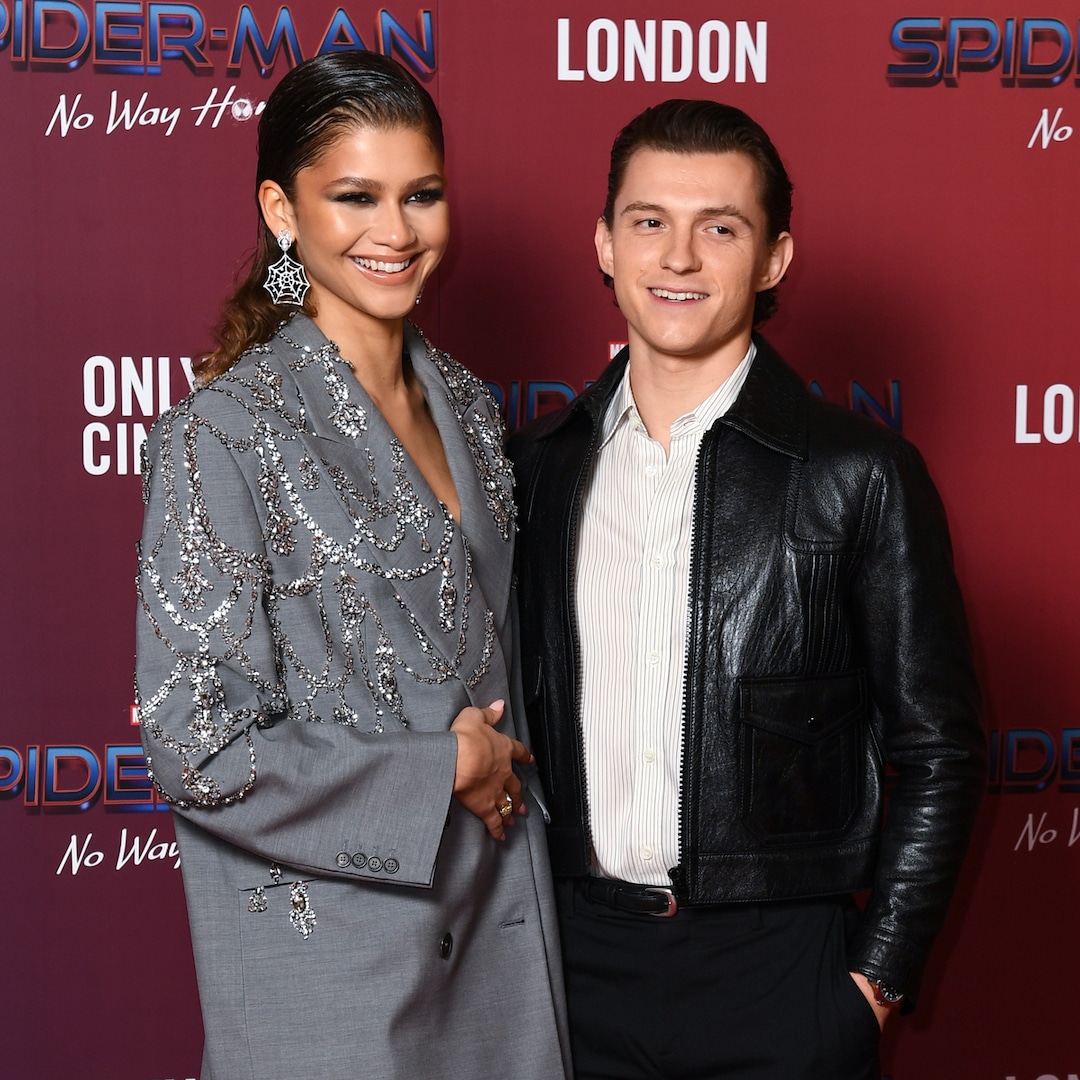
“A Purely Rationalist Dismissal of UFOs Fails To Capture Something Essential About the Phenomenon”: Daniel Claridge and Pacho Velez on Their Tribeca-Premiering They’re Here
Jun 8, 2024
They’re Here
Unless you are buried too deep into the Plato’s Cave that UFO researchers and enthusiasts insist we are only now emerging from, it has been hard to miss that UFOs — or, as they are called now, UAPs — are having a moment. Interest in what’s out there has ebbed and flowed over the years, from speculation about Roswell, NM and Area 51, the Erich Von Daniken books of the 1970s, The X Files to, more recently, declassification of Navy videos and UAP government whistleblowers testifying before government committees. UAP sightings are increasing — partly due to Starlink — while believers are proposing that crafts are blinking in and out of Earth’s space not from distant galaxies but from other dimensions.
It’s against this feverish backdrop that Daniel Claridge and Pacho Velez premiere their documentary They’re Here at the Tribeca Festival tomorrow. And while their subjects — several New Yorkers who have experienced contacts ranging from UAP sightings to actual abductions — tell the sorts of tales familiar from Whitley Strieber books and a slew of scarily-scored docs on Tubi, their approach is deliberately anti-sensational. Lower key, even, then another recent work that focused on the people behind the sightings, Yon Motskin’s Amblin-produced Netflix series Encounters, They’re Here is remarkable for its placement of UAP experiences within the quotidian daily grind. These experiencers of “the phenomenon” squint at iPhone screens, trying to decide for themselves whether that shiny object is a spacecraft or a drifting mylar balloon. They craft their experiences into quizzically-received stand-up comedy routines, or package their research into manuscripts they eagerly trundle around to academic publishers. An offbeat, minor-key addition to contemporary UFO lore, They’re Here wrestles with the usual epistemological issues while implicitly recognizing the societal and communal absences that allow these ambiguous stories to turn into ones that define character or simply elevate a life. I spoke to the two filmmakers before their Tribeca premiere about their own interest in UAPs, how they discovered their idiosyncratic subjects and their film’s eerie quiet.
Filmmaker: As your doc points out, upstate New York is a hotbed of UAP citings, so there must have been a large number of possible interviewees for this film. How did you find the subjects for your film, and what sort of information did you give them about your approach? Did any of them question your own stance on UAPs?
Daniel Claridge and Pacho Velez: Yes, there’s a large community of UFO-experiencers in Upstate New York: a whole world of fairs, conferences, expos, and museums devoted to the subject. We started out by attending a bunch of these events, listening to the speakers, and introducing ourselves to anyone who seemed interested in talking with us. We actually met Cookie Stringfellow, one of the main characters, very early on. We went to the grand re-opening of the Pine Bush UFO and Paranormal Museum in Crawford, NY. Cookie was there as well. Afterwards, we went to lunch with her and a few of her friends from the New York chapter of the Mutual UFO Network (MUFON).
As a longtime organizer of UFO events, Cookie is quite used to sizing up outsiders and their intentions. I think we passed her test because we’d done enough reading beforehand to hold our own in a conversation about UFOs and also because she saw that we had a genuine interest in understanding the root of these encounter experiences.
Besides meeting people through Cookie and her network, we also spent a lot of time on Reddit and reading / watching the upstate news outlets. We wanted to find people who were actively and honestly asking themselves why they’d been “chosen” by the ETs. We wanted to follow these kinds of why-me stories as they unfolded. Also, we carefully avoided the more cynical and profit-motivated corners of the UFO culture.
While making the film, lots of people asked us about our stance on UFOs. While we never reached reached a point where we agreed that mechanical crafts piloted by little gray beings from another planet are making regular visits to Earth, there are other subtler interpretations of the UFO phenomenon that appealed to us, like those UFOlogists that connect encounters to the human race’s long history of transcendental religious experience. Those ideas were more compelling to us, and we would usually frame our answers to questions about our belief in UFOs in those terms.
Filmmaker: How long have you been researching the UFO/UAP world? As you note in your press notes, UFOs have been rebranded as UAPs, and this has been concurrent with an uptick in mainstream UAP news, such as the New York Times report in 2017 and the recent testimony of whistleblower David Grusch. How much of your own interest was prompted by all this recent news, and how have you observed this news affecting the kinds of potential subjects you were finding?
Claridge and Velez: The 2017 article in the New York Times definitely felt like a moment of shifting attitudes in the culture-at-large. It was eye-opening to see that mainstream news outlets were willing to report on the topic without snickering or rolling their eyes! That reporting, along with some of the initial Navy videos, fired our imaginations. The news articles also encouraged a surprising number of our friends and neighbors to feel more comfortable sharing their own encounter experiences. It felt like a major cultural shift was unfolding.
Around that time we started researching the topic in earnest. We read a lot of classic UFO literature: Budd Hopkins, John Mack, Jacques Vallee, Chariots of the Gods, some of Dolores Cannon’s case histories. More than the details of the UFO encounters, what made a lot of this writing so memorable is how it connects the phenomenon to larger topics such as perception, consciousness, the line between memory and imagination, and transcendental experience. These questions about inner life became the themes that animated us the most.
It’s hard to say how the increasing public attention on the topic changed the film. Because UFOs were being discussed in the media, people who might have previously kept silent about their experiences were willing to talk to us. But also, there have been boom-and-bust cycles of UFO belief and skepticism in the United States since at least the late 1940s, including some very reputable voices speaking in support of their existence. So people were more open, but also it’s hard to say if we’ve “turned a corner” for good, or if this is just another moment in a cycle that’s been waxing and waning for nearly a century (or longer).
Filmmaker: You describe the lens through which you observe these subjects as a “fuzzy” one, “privileging the world as our characters experience it over the world as our camera photographs it.” What role did your own belief, or skepticism, play when interviewing these subjects and then editing the footage? You obviously had many opportunities to shape our own perception of your subjects and their stories — I’m struck by the UFO observer who admitted on camera he had taken mushrooms before his sighting.
Claridge and Velez:: It’s true that neither of us have had a UFO experience, and – absent more conventional kinds of “proof” – would probably bet against the idea that we are being routinely visited by otherworldly beings. But our skepticism cuts the other way as well, in the sense that we both also think that a purely rationalist dismissal of UFOs fails to capture something essential about the phenomenon, like what it tells us about the thin border between perception and reality, and the meaningful lack of transcendent experience in daily life. So our skepticism inoculated us against the temptation to make either a sensationalized documentary (think “Ancient Aliens”) or a gotcha film that takes pleasure in “scientifically” debunking UFO encounters.
We looked for subjects who were comfortable with this two-sided skepticism, and that meant finding people who were genuinely curious about their experiences and who weren’t pedaling a self-aggrandizing narrative. Even though we advertised our ambivalence in interviews, most of our characters had already been subjected to much harsher skepticism by the world around them, and were struggling to reconcile their own self-doubts with the undeniable emotional impact of their experience. That was what was interesting to us. Dave’s early admission that he was on psychedelic mushrooms struck us as remarkably candid in this way, and it made clear to us that he was committed to wrestling with what he had truly experienced, warts and all. That commitment allowed us to quickly move past the usual skepticism to get at more interesting questions about how it changed Dave’s view of himself and his circumstances. There’s a similar moment later in the film when a character fails to recall his UFO experience under hypnosis – a circumstance in which others might reasonably be tempted to make something up. We chose to include these scenes because they spoke to the integrity of our characters’ experiences, and to their deep commitment to figuring out their own personal truth.
Filmmaker: The film has an eerie calm to it. It’s often quite quiet, and you’ve steered away, until the very end, at least, from the sort of post-production enhancements and effects that signify mystery and the paranormal. It’s a sort of anti-TUBI approach. What sort of choices did you make in the post-production around the style, rhythm and sound design of the film?
Claridge and Velez: We always intended to make something that was the opposite of a typical “UFO documentary,” in the sense that we were much less interested in flying objects than in the people who see them. So even though our subjects are grappling with otherworldly encounters, the film is fundamentally about something much more terrestrial: making sense of experience through conversation and connection.
In the edit, we wanted the documentary to feel like a hang-out with these people as they worked through the meaning of their sightings, including those aspects of their UFO encounters that were hard to describe, and perhaps even ineffable. For us, the patient attempt to make sense of an encounter was as interesting, and perhaps more important, than any of the answers people arrived at. It meant that we tried to embrace extended moments in which people are thinking, speaking, and struggling to capture how they feel. We chose to edit these interviews and conversations using a simple, intimate film grammar to reinforce our interest in the human side of the encounters.
The soundscape of the film, including the “quiet” that you reference, reinforces the grounded nature of their endeavor to understand something meaningful about their sightings. When we intervene more dramatically (through music, sound design and special effects), it is always in the service of illuminating a character’s interior life, including their memories, beliefs, and wishes for the future . For us, the guiding principle throughout the process was to think of They’re Here as a documentary about personal experience, including both the contemplative moments of self-reflection and the imaginative flights of fancy that are a part of it.
Filmmaker: While you say you have never seen a UFO, do you look?
Claridge and Velez:: We both have yet to see a UFO, but we take to heart Cookie’s favorite piece of advice: “always look up!”
Publisher: Source link
Jennifer Lopez Finally Understands Mi Gente Latino Meme
Jennifer Lopez Finally Understands Mi Gente Latino Meme Kicking off 2025, J.Lo is now promoting Unstoppable, a new biography drama in which she stars alongside Moonlight actor Jharrel Jerome. At the 2011 American Music Awards, Jennifer won Favorite Latin Artist…
Jan 11, 2025
Tom Holland's Dad Shares Insight Into Zendaya Engagement
Tom Holland became the greatest showman for his proposal to Zendaya. Just days after the Spider-Man actress turned heads at the 2025 Golden Globes with a 5-carat ring on that finger, Tom's dad... Disclaimer: This story is auto-aggregated by a…
Jan 11, 2025
Aubrey Plaza Issues Statement After Jeff Baena’s Death
The 40-year-old star and Jeff’s family issued a statement to People on Monday, where they called their loss an “unimaginable tragedy.”The Los Angeles County coroner’s office previously determined that Jeff died by suicide in his LA home. He was 47…
Jan 10, 2025
Jill Duggar’s Husband Clarifies Where He Stands With Jim Bob Duggar
Jessa Duggar (m. Ben Seewald)Jim Bob and Michelle's fifth child, Jessa Duggar, was born Nov. 4, 1992. Jessa met Ben through church and he began courting her in 2013—the old-fashioned approach to romance coming as a brand-new notion to a lot…
Jan 10, 2025











